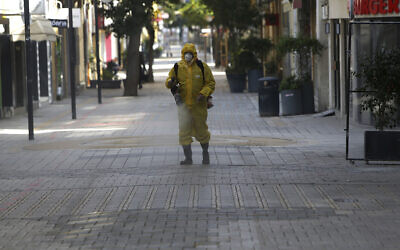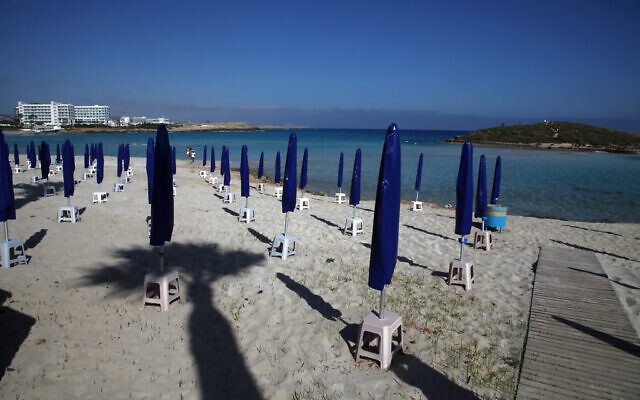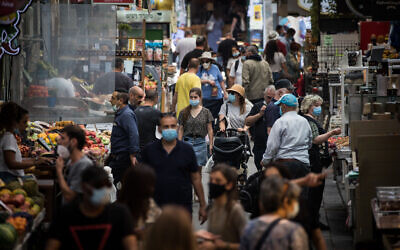Nicosia says visit by Nicos Anastasiades pushed off because of coronavirus concerns, as Cyprus prepares to open tourist season after removing Israel from low-risk group

Cypriot President Nicos Anastasiades has canceled a planned visit to Jerusalem next week, as the Mediterranean island nation expresses jitters over climbing coronavirus numbers in Israel.
Anastasiades had been slated to visit Israel on Tuesday to discuss energy, tourism and tensions with Turkey, but decided to postpone the visit to an unspecified date, a government spokesman said Thursday, according to the Cyprus Mail.
Kyriacos Kousios said Anastasiades spoke to Israeli Prime Minister Benjamin Netanyahu on Thursday and decided to push off the visit in light of the coronavirus crisis.

There was no confirmation from Israeli officials.
Anastasiades would have been just the second world leader to visit since the coronavirus pandemic led Israel to close its borders in early March. Greek prime minister Kyriakos Mitsotakis and other Greek ministers visited Israel earlier this week to discuss the same issues.
During the visit, Netanyahu said Israel was planning to reopen its borders to tourism with Greece and Cyprus starting August 1.
Israelis had already begun to return to Cyprus earlier this month, becoming the first tourists to visit the island as it reopened its borders to travelers from countries with relatively low infection rates.
However on June 11, Cyprus relegated Israel from its low risk category, meaning that Israelis wishing to visit starting June 19 will need to be tested three days before boarding a flight and will need to carry a special certificate of health, according to the Financial Mirror.

Those in the lowest risk category do not need to be tested or quarantine upon arrival starting June 20.
On Thursday, Nicosia confirmed Israel’s placement and added more countries into the category, putting Israel on par with hard-hit Italy and France, among others.

Israel in May saw the number of new daily coronavirus infections drop to only a few dozen, but has since seen a major resurgence of COVID-19, with hundreds of new cases each day.
On Thursday, it passed 20,000 virus cases; 303 people have died from the virus in the country.
Responding to climbing numbers, Netanyahu said that Israel would not take any more steps to roll back restrictions and may reimpose lockdowns in some places.
Cyprus has tallied 985 total coronavirus cases and 19 deaths and has looked to jumpstart its ailing tourism industry, among the island’s most important. Israelis make up the third largest group of tourists to Cyprus.
Jerusalem’s already warm ties with Nicosia got a boost in January when they signed a tripartate deal with Athens for a huge pipeline project to ship gas from the eastern Mediterranean to Europe, despite Turkey’s hostility to the deal.

The 2,000-kilometer (1,200-mile) EastMed pipeline will be able to carry between nine and 12 billion cubic meters of gas a year from offshore reserves held by Israel and Cyprus to Greece, and then on to Italy and other southeastern European countries.
The discovery of hydrocarbon reserves in the eastern Mediterranean has sparked a scramble for the energy riches and a row between Cyprus and Turkey, which occupies the northern part of the Mediterranean island.
As reported by The Times of Israel
